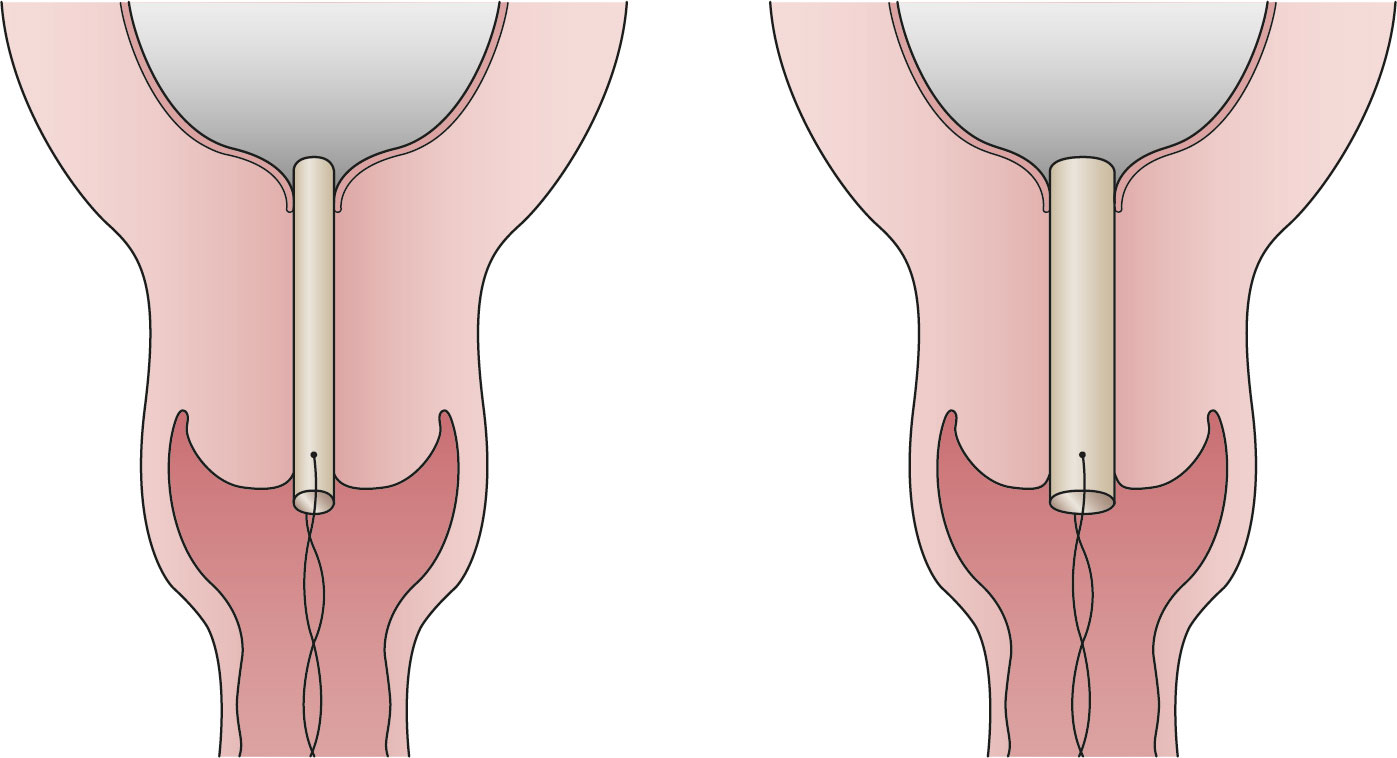
Cervical preparation is given before surgical abortion at all gestations.
If you have been asked to attend the clinic so that your cervix can be prepared the day before your treatment, you should expect to be at the clinic for up to 3 hours.
The cervix (neck of the womb) can be prepared for treatment with the following medications
- mifepristone
- misoprostol
- absorbent dilators called Dilapan
You may need only one of these medications or you may need more. We will fully explain which preparation you need and when this will occur.
Mifepristone and misoprostol
Mifepristone and misoprostol tablets soften the cervix, making it easier to dilate (open).
Mifepristone is a pill that you swallow. You may be given a mifepristone tablet to take at home, the tablet could be mailed to you in the post, or you may be asked to take it in the clinic. Mifepristone can cause cramping, vaginal bleeding, or nausea. If you vomit within an hour of taking mifepristone, please let the clinic know when you arrive for your treatment.
If you do not use this medicine, please return to your local pharmacy or contact BPAS about how to dispose of or return the drug. Do not use it for another pregnancy as you could be prosecuted.
Rarely women may go on to miscarry their pregnancy because of taking mifepristone. This risk increases if mifepristone is used together with other methods of cervical preparation (Dilapan) or you have had feticide as part of your treatment, but remains an uncommon risk. Heavy bleeding or labour pains or the waters breaking can be signs of miscarriage. If any of these occur while you are at home, call the clinic or Aftercare Line on 0300 333 68 28 (or +44 1789 508 210) for advice.
Misoprostol tablets are either placed in your vagina or under your tongue in clinic before the procedure. Refer to the table below for the full list of side effects.
Dilapan
Dilapan are matchstick-sized rods that are inserted into the cervix before surgery. They swell to gently open the cervix. Insertion takes place in the clinic and takes just a few minutes. We may use injectable or sprayable local anaesthetic for this procedure. If your treatment is planned over 2 days, you will go home after they are placed. As the Dilapan expands it can cause cramping or very light bleeding and very rarely your waters can break and you may go on to miscarry. Sometimes the Dilapan may fall out. You will be given extra information about pain control and what to do if you start labour or your waters break.
If you experience problems after the Dilapan has been inserted, call the clinic or Aftercare Line on 0300 333 68 28 (or +44 1789 508 210) for advice.
How Dilapan swells in the cervix

We may recommend the standard, alternative or special cervical preparation, whichever is most suitable for you.
| Gestation | Standard | Alternative | Special circumstances |
| Under 14 weeks | Mifepristone 1 tablet in the mouth 24 hours before surgery | Misoprostol 2 tablets under the tongue for 1 hour | Dilapan 4 to 24 hours before surgery |
| 14 to 16 weeks | Mifepristone 1 tablet in the mouth 24 hours before surgery | Misoprostol 2 tablets in the vagina for 3 hours | Dilapan 4 to 24 hours before surgery |
| 16 weeks + 1 day to 17 weeks + 6 days | Mifepristone 1 tablet in the mouth 24 hours before surgery an misoprostol 2 tablets under the tongue for 1 hour | Misoprostol 2 tablets in the vagina for 3 hours | Dilapan 4 to 24 hours before surgery |
| 18 weeks to 19 weeks + 6 days | Dilapan for 4 hours | Overnight Dilapan and mifepristone 1 tablet by mouth at the time of Dilapan insertion | |
| 20 weeks to 23 weeks + 6 days | Overnight Dilapan and mifepristone by mouth at time of Dilapan insertion |
Side effects, risks and complications
|
Mifepristone |
Misoprostol |
Dilapan |
|
Very common (1/1 to 1/10):
Common (1/10 to 1/100):
Uncommon (1/100 to 1/1000):
|
Very common (1/1 to 1/10):
Uncommon (1/100 to 1/1000):
|
Very common (1/1 to 1/10):
Uncommon (1/100 to 1/1000):
|
Need more help?
We are an independent healthcare charity which for more than 55 years, has been advocating and caring for women and couples who decide to end a pregnancy.




